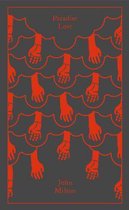The epic:
● enormous scope as the poem moves freely between Earth, Eden, Heaven and Hell, past, present and future, across a range of topics
● long as Milton wants his readers to struggle, even sometimes to feel lost, precisely so that we can sharpen our critical faculties, making the
understanding we emerge with all the greater
● Personal poem as well as public as encapsulates his thoughts on marriage, gender, authority and religion
● Milton from a young age was determined to leave his literary mark on the world
● Milton initially planned to write it as a miracle/morality play but stock characters didn’t give him enough scope just as Ibsen rejects well-made play
● Makes the story more human but potentially more dangerous
● Literal and metaphorical battles must happen - inner conflict/challenging of authority, conflict is a part of human development, strength comes from
morals not just physical power
● “Argument not less but more Heroic then the wrauth of stren Achilles” - importance of message
Love and Relationships
AO1 AO3 AO5
Book 9 "two carcasses chained unnaturally together" "True freedom is the freedom to err" (Beer)
"For nothing lovelier can be found in Woman, than to studie household good" (Milton about ill-suited spouses) - Adam only grants Eve partial autonomy
- Obedience is the foundation to love, focus on domestic education limits Eve's - Eve's natural instinct is to be an and lets her perform as an independent
intellectual development and preserves Adam's authority in the relationship. autonomous individual but her religion woman within limits - won't allow her to
She is refused agency outside of the marital bond and in turn longs for binds her to Adam make mistakes
individuality
Adam conforms to 17th century gender stereotypes "Happiness cannot exist without liberty" (Revard)
"Let us divide our labours" through being stronger than Eve and having
- Eve longs to become an autonomous individual as she is merely an extension absolute rule over her "All too enclosing relationship that stifles rather
and the property of Adam (rib). She is offering him the opportunity to transfer being a relationship that nurtures" (Zimmerman)
his dominion to another aspect of Eden so that she can be temporarily liberated “Companionate marriage” - Milton
from the suffering constraints of her marriage. However, this symbolises “Adam fell by uxoriousness” (C.S.Lewis)
separation of devotion, rift forming in relationship as female independence Adam placing Eve above God - Puritans, such as
cannot coexist with a traditional marriage. Milton, denounced the idolatry associated with “The tragedy is more his failure than hers”
Catholicism and believed in individual faith and (Burden)
“Sweet intercourse of looks and smiles” worship - must develop and strengthen relationship
- Compatibility, shared commonality, not strangers until woman gains knowledge with God first, Eve limits Adam’s ability to serve “The sexes are interdependent” (Revard)
God and be a good Christian
"How are we happie, still in fear of harm?" “Adam is father and mother to Eve” (Carey)
- Eve highlights how education and understanding is central in a relationship to Man cannot serve God and be a good hardworking
combat outside threats - misunderstanding is the downfall of Helmer marriage, Christian if he is in a marriage that doesn’t supply “Milton 'Fails to convince us that Adam and Eve
, can only overcome evil by understanding Satan's power. Adam often “meet and happy conversation” - Adam and Eve are happy” (Tillyard)
misinterprets Eve as his thoughts are occupied by appearances and his demonstrate this even after the fall so their
reputation. Eve is willing to take risks and divert from norms as she surrendered marriage stays strong however there are moments 'Eve was created to be Adam's helper, his
her identity from the outset. where it is strained unequal companion' (Whitfield)
"For inferior, who is free?" Eve embraces the Protestant work ethic, values
- happiness cannot exist without liberty and equality labour
"Thou shouldst my firmness therefore doubt... I expected not to hear"
- Adam's misjudgement of Eve's character suggests a lack of understanding
between the two, has power over his emotions and manipulates him to achieve
goal (in this instance temporary freedom) like Nora
"In thy sight more wise, more watchful, stronger"
- Eve's helplessness will enhance Adam's appearance, focus on appearances
and reputation, inwards facing. Marital love is weak/insecure and undermined
as the women become autonomous individuals - traditional marriage and
female independence cannot coexist, shatters fantasy.
"Still shades thee and protects"
- Shielded from outside influence so will only be educated and understand God
and her duties through him, can protect her externally but it is "within himself
the danger lies" - failure to educate her causes her fall, be cautious of Eve's
incapability not Satan's capability.
“Drooping… her self, though fairest unsupported Flour, from her best prop so far”
- Symbolic of detrimental effects of patriarchal control, reliant on his protection
but also needs liberation, floral imagery signifies remaining innocence and
women purely objectified as a physical form
“Adam shall share with me in bliss or woe: so dear I love him, that with him all deaths I
could endure, without him live no life”
- Selfish love, denying Adam agency, gender roles reversed
“In solitude live savage”
- Adam appears to consider separation from Eve, blames her for their situation
and is a bad influence on him
“High Passions, Anger, Hate, Mistrust, Suspicion, Discord”
- Overcome by emotion which would be labelled as hysterical behaviour if it was
a woman, inwards facing reaction





